by Joslyn Rose Trivett, SPP Education and Outreach Manager

In April, I was fortunate to spend days and days immersed in the topic of astrobiology. What is astrobiology? It is the study of how stars and planets form, how that relates to life here on Earth, and the search for life elsewhere in the Universe. Alongside hundreds of incarcerated students and dozens of corrections staff in both Washington and Ohio, I got to learn about what is known, what is still unknown, and ponder immense questions. I had stars in my eyes, for sure!
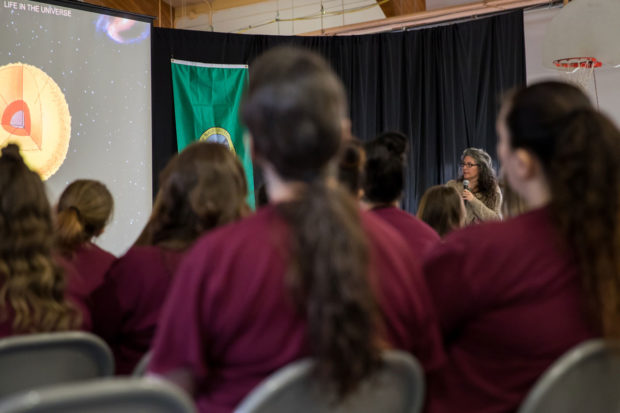
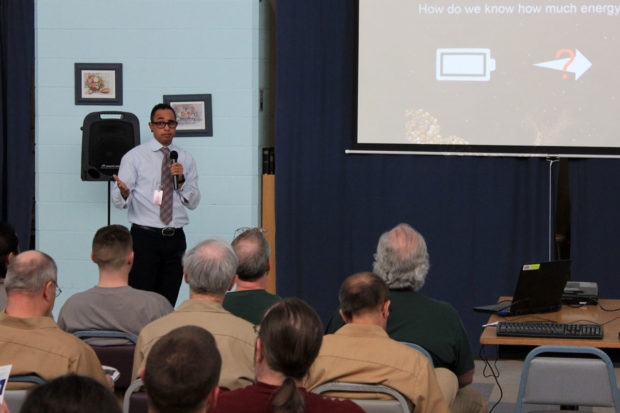
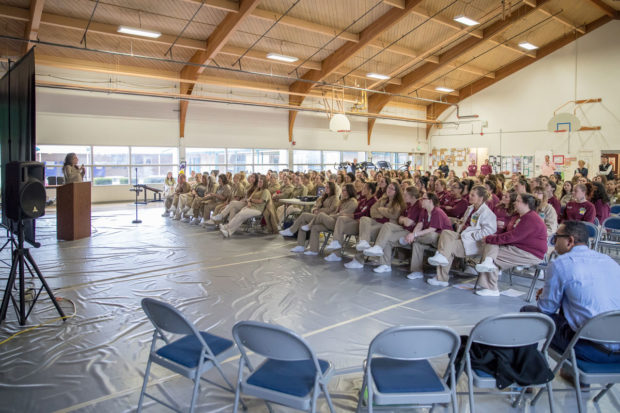
Astrobiology for the Incarcerated is a new program, funded by the National Aeronautics and Space Administration (NASA)’s Astrobiology Program, and in partnership with Sustainability in Prisons Project (SPP) and Utah’s Initiative to bring Science Programs to the Incarcerated (INSPIRE). The program was brought to us by Daniella Scalice, Education and Communications Lead for NASA’s Astrobiology Program; she is a master of describing exquisite concepts and making them relevant to our lives.
Here I will share details from the Washington State programs; I will share Ohio’s in part 2. In Washington, Daniella was joined by Dr Drew Gorman-Lewis, Associate Professor in the Earth and Space Sciences at University of Washington. Our small team visited five prisons in four days, reaching 450 incarcerated students and 52 corrections staff. At each venue, Drew and Daniella told us a three-part story.
Part One: Creation
Daniella introduced us to the life cycle of stars—who knew that stars had life cycles!—and how their birth, maturity, and death creates and distributes most of the elements that makes up the Universe as we know it. She told us: Every atom in our bodies, the water we drink, the food we eat, our buildings, our roads, the things we buy and make, all were built in the heart of a star. It’s a dizzying concept, one that connects everyone and everything.
She outlined how these elements may have come together in the nutrient and energy rich environments of hydrothermal vents—hot water vents at the ocean floor—to create the first microbes, the first life on Earth.
Part Two: Adaptation
Part two came from Drew. He told us about his research with microbes, single-celled organisms, that live in extreme environments on earth. His personal and professional favorites live in near-boiling pools of acid—really! He emphasized that there are microbes living and thriving in nearly every environment on Earth. Those inhabitants also influence their environments; their life processes take up, transform, and leave behind new elements and structures. The microbes can quickly adapt to take advantage of new conditions, and so back and forth, life and the Earth interact and influence each other. His research investigates how much energy microbes use to live in extreme environments, and in this way sheds a bit of light on where and how we might find microbes beyond our Earth.
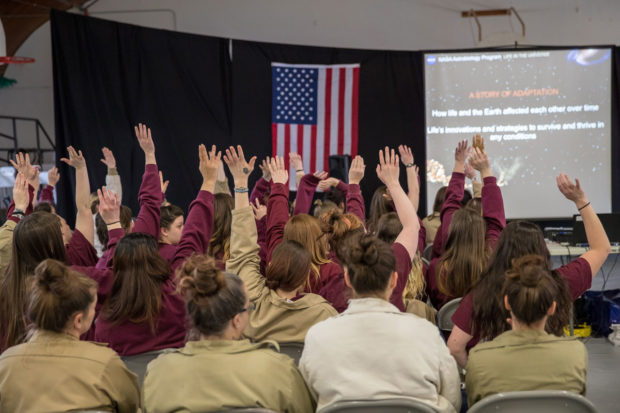
Part Three: Exploration
Daniella’s part three dove into this search for life, focusing on the most promising worlds within our solar system. I was amazed to learn that there are some excellent contenders! I was particularly taken by moons of Jupiter and Saturn, Europa and Enceladus, that have global oceans: hidden beneath icy crusts, their worlds are covered with liquid water. On Enceladus, there is also evidence of geothermal vents. Given that one of the theories for the origin of life places it in Earth vents, this news of similar environments on a moon of Saturn gave me the chills (the good kind).
At every venue, the students dazzled us with ideas and questions. I think that’s the best part for me—hearing how others are making sense of the concepts, the collective insights and exploration. I learned as much from them as from the scientists…as usual!

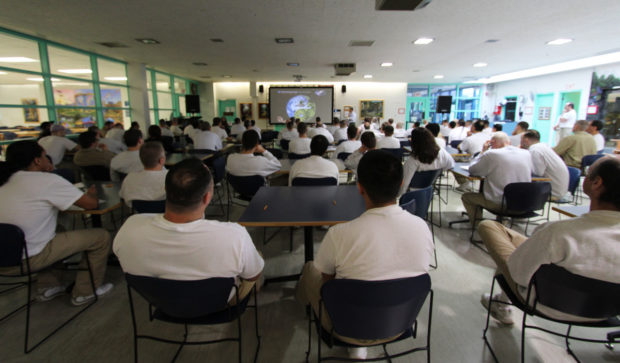
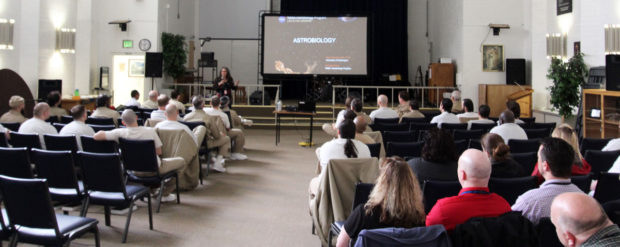
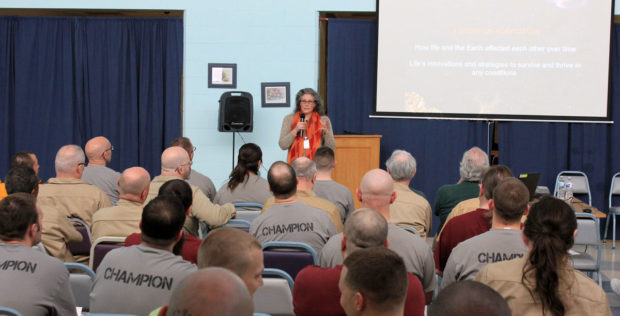
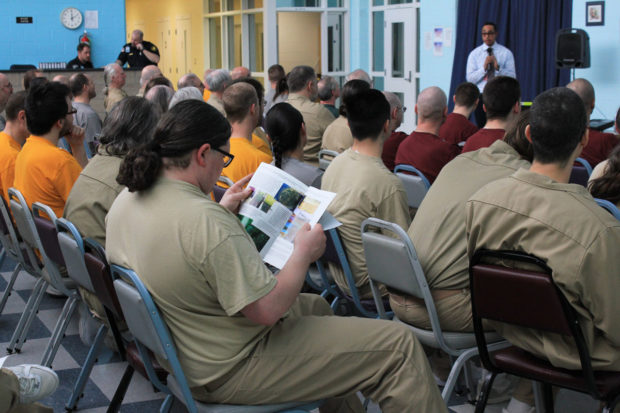











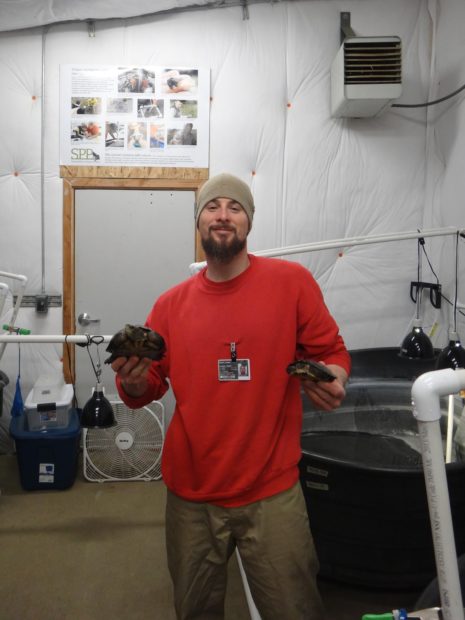
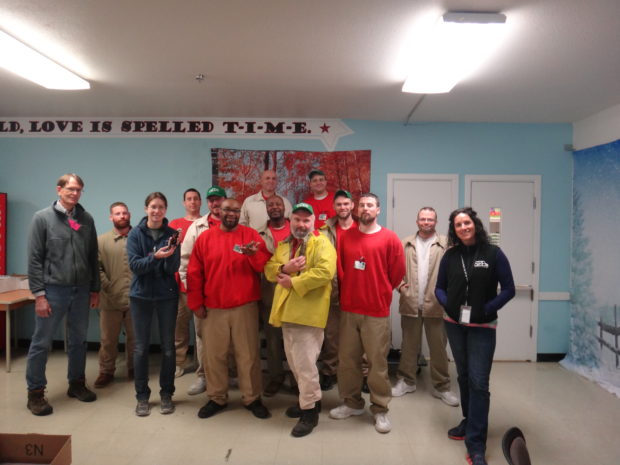
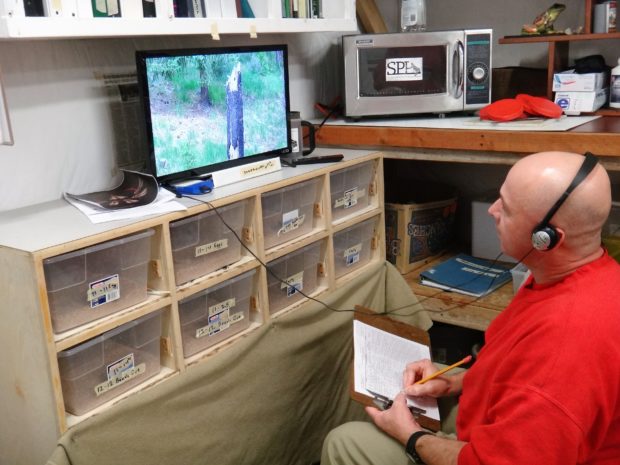
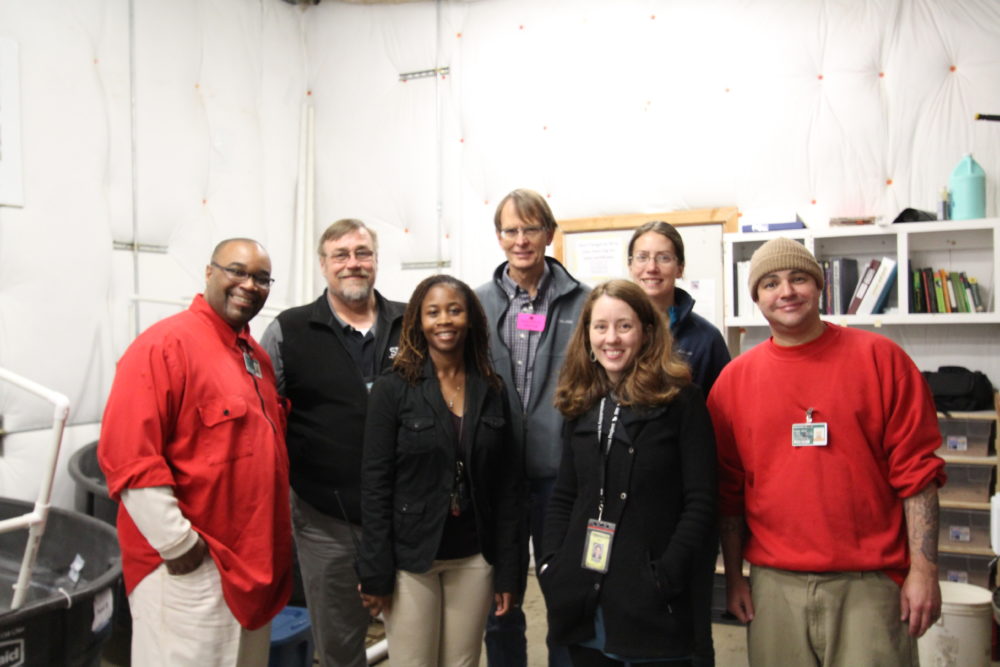



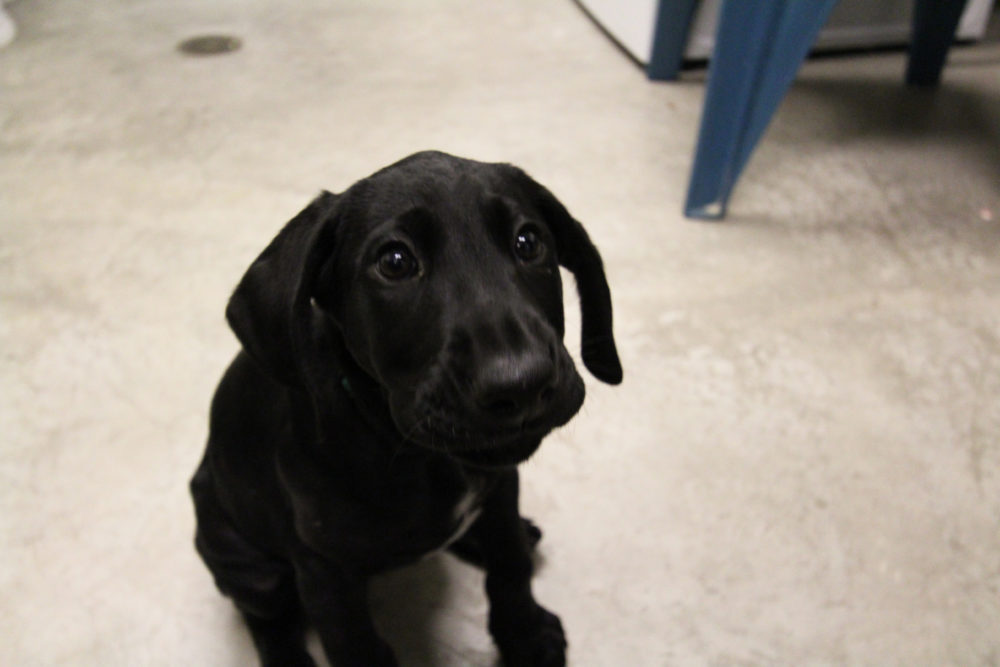


 CRCC during the summer. The picture is looking at some of the units and the courtyard with a rock garden in the center. The gardens at CRCC all feature native plants and rock designs. Photo by Ricky Osborne.
CRCC during the summer. The picture is looking at some of the units and the courtyard with a rock garden in the center. The gardens at CRCC all feature native plants and rock designs. Photo by Ricky Osborne.

























